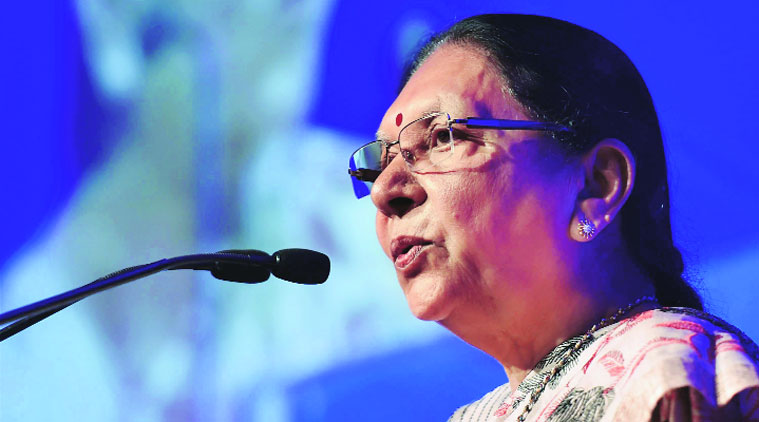The Gujarat Assembly on Tuesday passed a stringent anti-terror Bill retaining controversial provisions that had twice earlier led to a previous such Bill being rejected by the President.
The Gujarat Control of Terrorism and Organised Crime (GCTOC) Bill 2015 makes only minor changes in the controversial Gujarat Control of Organised Crime (GUJCOC) Bill, including adding the word ‘terrorism’ in the name. However, it retains clauses such as permitting admissibility of evidence collected through interception of mobile calls of an accused or through confessions made before an investigating officer, in a court of law.
The Gujarat government, at the time led by Narendra Modi, first introduced the GUJCOC Bill in 2003, with the same clauses, including increasing the period to file chargesheet from 90 to 180 days, and laying down strict conditions for bail to be given to the accused. The Bill was rejected by then President A P J Abdul Kalam in 2004, demanding that the clause relating to interception of communication be removed. The NDA was in power at the time.
Related
Gujarat anti-terror bill, an old wine in new bottle
Amendments will take away GUJCOC’s ‘teeth and nails’: Modi
Centre returns GUJCOC Bill,asks state to amend 3 clauses
The state Assembly passed the GUJCOC Bill again twice after that, each time under Modi as CM. In 2008, it was without the clause objected to by Kalam. But then President Pratibha Patil also refused to clear the Bill, seeking more changes, including deletion of the provision allowing confessions before a police officer as evidence in court. The Centre had a UPA government then.
The Gujarat government, however, ignored Patil’s suggestions and cleared the Bill for the third time in 2009. This Bill is still pending clearance by the President.
The GCTOC Bill, while reintroducing the provision allowing interception of communication and retaining the one relating to confessions made before a police officer, only proposes that the officer concerned be of the rank of superintendent of police and above.
Minister of State for Home Rajnikant Patel, who tabled the GCTOC Bill, argued that the legislation was required for the safety and security of the residents of Gujarat, which shares its border with Pakistan. “Pakistan cannot win the war against India. We all know about terrorist activities in Pakistan. To protect every single citizen from the bullet of terrorists, we need to strengthen the law,” Patel said.
The Congress, which objected to the Bill, eventually abstained from voting on it.
While Gujarat has been relatively peaceful the past 10 years, the Bill’s ‘Statement of Objects of Reasons’ says, “It is noticed that organised criminal syndicates make common cause with terrorist gangs and foster macro terrorism, which extends beyond national boundaries. There is a reason to believe that organised criminal syndicates are operating in the state and… there is immediate need to curb their activities.”
Congress Abdasa MLA Shaktisinh Gohil objected that clauses in the Bill contradicted Central laws that do not allow an investigating agency to take confession and use it as evidence. “Besides, when the Union Act has fixed chargesheet filing period as 90
days, where is the need for change?” he said.
Pointing out that the GUJCOC Bill had earlier been rejected by the president including when the BJP was in power at the Centre, Gohil added, “The argument that it was stalled by the UPA is baseless. The Bill has been reintroduced to get political mileage as it cannot get clearance in its present form.”
Leader of the Opposition Shankersinh Vaghela said the Bill was “not for protection of the people but for the protection of the BJP”.
Justifying allowing evidence collected through “interception of wire, electronic or oral communication”, the GCTOC Bill, in the ‘Statement of Objects and Reasons’, says this is necessary as organised criminal syndicates make extensive use of wire and oral communication.
Another of its clauses says, “A confession made by a person before a police officer not below the rank of SP… shall be admissible in the trial of such accused, co-accused, abettor or conspirator for an offence under the provisions of this Act.”
Defending the clause allowing 180 days for filing of a chargesheet in a case under the GCTOC, minister Patel said, “Neighbouring Maharashtra, in its MCOCA (Maharashtra Control of Organised Crime Act), has changed certain rules, including the period given for filing a chargesheet. Sometimes more investigation time is required to solve sensitive cases.”








